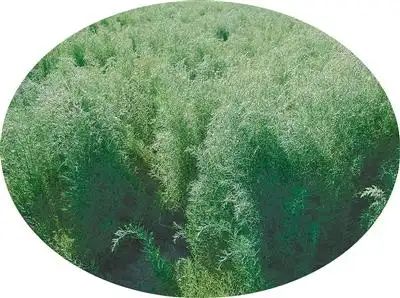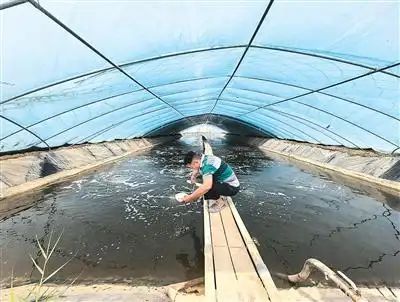




- BRNN
- BRI News
- BRNN News
- Database
Official Documents Polices and Regulations
Inter-government Documents International Cooperation BRI Countries
Business Guide Economic Data BRI Data
Trade
Investment Projects Latest projects
Cases - Content Pool

A harvester reaps wheat in saline-alkali fields in Heshuo county, northwest China's Xinjiang Uygur Autonomous Region. (Xinhua/Gao Han)
More than one-third of arable land in northwest China's Xinjiang Uygur Autonomous Region suffers from varying degrees of salinization, resulting in low crop yields and, in severe cases, complete barrenness. Across the region, different technological approaches are being applied to reclaim saline-alkali land, increasing both agricultural production and farmers' income.
In a date orchard of the 18th Company of the 49th Regiment under the Third Division of the Xinjiang Production and Construction Corps, trees are now laden with fruit. This vibrant orchard was low-yielding farmland just three years ago due to severe soil salinization.
"Previously, broad irrigation brought surface salt to the date trees roots, preventing proper growth," said Su Yongping, Party chief of the Company.
In 2023, Yin Feihu, an academician of the Chinese Academy of Engineering, led a team to establish a red date research base in the area. They began deploying technologies such as saline water desalination, salt drainage through vertical wells, and underground drip irrigation across 330 mu (22 hectares) of date orchards in 2024.
"This area sits on the western edge of the Taklamakan Desert, with abundant underground saline water reserves. We use a photovoltaic power system to pump saline water from salt drainage wells and deploy desalination devices to simultaneously desalinate saltwater and improve soil quality," Yin said.
New technologies have brought remarkable results. In the first year alone, date production increased by 50 kilograms per mu, and improved quality commanded a price premium of 0.2 yuan (around $0.03) per kilogram compared to neighboring areas.
"Saline-alkali land has become fertile soil and brought prosperity," Su said, adding that once all 4,000 mu of the 18th Company's date orchards undergo improvement, revenue will rise significantly.
A halophyte garden established by Tian Changyan, a researcher at the Xinjiang Institute of Ecology and Geography under the Chinese Academy of Sciences, and his team in Karamay city is another example.
Starting in 2000, Tian spent three years with his team surveying nearly every saline-alkali area in Xinjiang, discovering 320 species of halophytes—plants that absorb salt from soil—and establishing two gardens that introduced over 150 halophyte varieties.

Photo shows Suaeda salsa, a plant that can reduce soil salt content, in Karamay city, northwest China's Xinjiang Uygur Autonomous Region. (Photo/Tian Changyan)
From these halophytes, Tian selected Suaeda salsa for trial cultivation, a species that demonstrated strong salt tolerance and relatively high yields. He found that on saline-alkali land where other crops couldn't grow, each mu of Suaeda salsa could yield 1.8 tonnes of dry grass while removing over 400 kilograms of salt.
"In the first year after planting, soil salinity decreased by 40 percent. It reached a cumulative reduction of over 60 percent by the second year, and 85 to 90 percent by the third year, transforming saline-alkali land into soil suitable for normal crops," Tian said. Suaeda salsa also offers economic value and contributes to the greening of degraded land.
Following successful trials, Tian promoted the saline-alkali improvement method in areas including Hotan county and Qinghe county. Thanks to drip irrigation, three years of Suaeda salsa cultivation successfully desalinated the soil. The subsequent planting of legume crops for soil enrichment, followed by cotton cultivation, brought yields to the level of normal land.
Currently, Suaeda salsa cultivation has been promoted across multiple counties, districts, and regiment farms throughout Xinjiang.
China's "No. 1 central document" for 2023 emphasized the continued shift from adapting crops to saline-alkali land toward selecting and breeding salt-alkali-tolerant plants suited to such environments, while conducting trials for the comprehensive development and utilization of farmland reserves including saline-alkali land.
"We're continuously changing our approach, seeking 'peaceful coexistence' with saline-alkali land by selecting and breeding crops that thrive under such conditions," said Xu Wanli, director of the Research Institute of Soil, Fertilizer and Agricultural Water Conservation at the Xinjiang Academy of Agricultural Sciences, who has worked in the field for over 20 years.
The oil crop team at the Research Institute of Economic Crops under the same academy introduced autumn-sown rapeseed varieties tolerant of moderate to severe saline-alkali conditions, achieving yields of 157.9 kilograms per mu last year in Jibuku town, Qitai county, Changji Hui Autonomous Prefecture.
In 2023, a village in Luopu county, Hotan prefecture, experimented with saline-alkali-tolerant rice, achieving yields of 550 kilograms per mu thanks to science-based management. This year, the village expanded the cultivation of the rice variety to 400 mu.
Today, saline-alkali land supports not only crops but also aquaculture. Zhang Mingyi, an official with the Department of Agriculture and Rural Affairs of Xinjiang, noted that saline water is increasingly used for aquaculture in southern areas such as Hotan and Kashgar.

Photo shows an aquaculture base built on saline-alkali land by the 14th Regiment under Alar city of the First Division of the Xinjiang Production and Construction Corps in northwest China's Xinjiang Uygur Autonomous Region. (Photo courtesy of the media convergence center of Alar city of the First Division of the Xinjiang Production and Construction Corps)
On the edge of the Taklamakan Desert, some places are now using abandoned saline water for aquaculture, achieving considerable scale. This innovation not only solves the problem of seafood access in remote inland areas but also generates significant economic benefits.

Tel:86-10-65363107, 86-10-65368220, 86-10-65363106